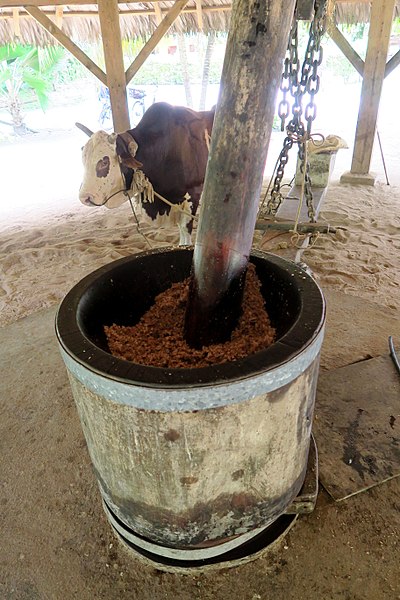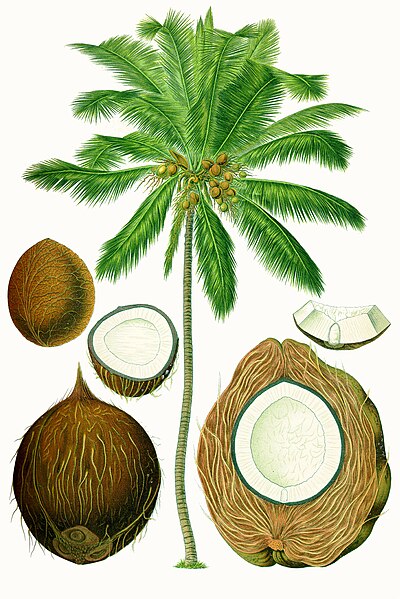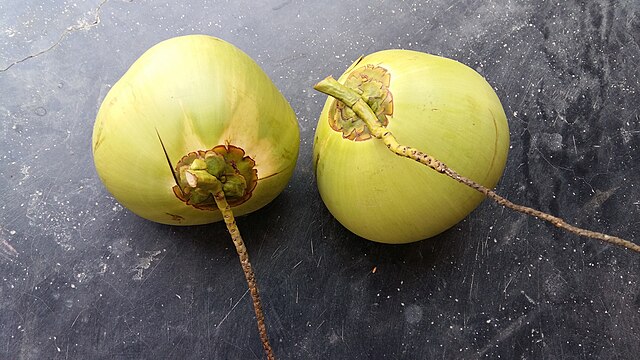Copra is the dried, white flesh of the coconut from which coconut oil is extracted. Traditionally, the coconuts are sun-dried, especially for export, before the oil, also known as copra oil, is pressed out. The oil extracted from copra is rich in lauric acid, making it an important commodity in the preparation of lauryl alcohol, soaps, fatty acids, cosmetics, etc. and thus a lucrative product for many coconut-producing countries. The palatable oil cake, known as copra cake, obtained as a residue in the production of copra oil is used in animal feeds. The ground cake is known as coconut or copra meal.
Coconuts sun-dried in Kozhikode, Kerala, India for the production of copra
Copra kiln drying in La Digue (Seychelles).
Crushing copra in La Digue (Seychelles).
The coconut tree is a member of the palm tree family (Arecaceae) and the only living species of the genus Cocos. The term "coconut" can refer to the whole coconut palm, the seed, or the fruit, which botanically is a drupe, not a nut. They are ubiquitous in coastal tropical regions and are a cultural icon of the tropics.
Coconut
Image: Cocos nucifera Köhler–s Medizinal Pflanzen 187
Image: Coconut 4
Coconut palm leaves







